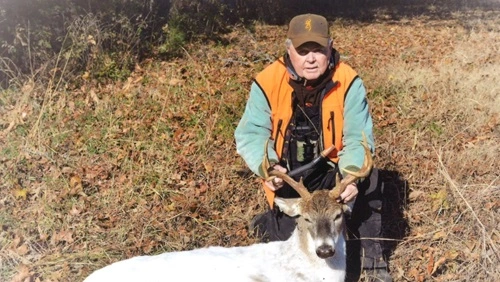The legality of hunting albino deer in the United States varies by state, with some states imposing strict prohibitions while others permit it under general hunting regulations. Understanding these laws is crucial for hunters to ensure compliance and to respect conservation efforts.
States Prohibiting the Hunting of Albino Deer
Several states have enacted laws specifically protecting albino deer due to their rarity and unique appearance:
- Wisconsin: The Wisconsin Department of Natural Resources prohibits the hunting of albino and partially albino deer. Violating this law can result in fines and the confiscation of the deer.
- Illinois: Hunting albino deer is classified as a Class B misdemeanor, punishable by fines up to $2,500 or 180 days in jail, along with confiscation of the deer.
- Tennessee: State law makes it illegal to trap, hunt, or possess an albino deer, defined as a deer lacking pigmentation in the skin and hair with pink eyes. Offenders may face fines and other penalties.
- Iowa: The state prohibits the hunting of albino deer, with regulations enforced by the Iowa Department of Natural Resources.
States That Previously Had Bans
Some states once had prohibitions on hunting albino deer but have since lifted these restrictions:
- Minnesota: The Minnesota Department of Natural Resources enforced a ban on harvesting white or albino deer until 2008, after which the protection was removed.
- Michigan: Similar protections were in place until 2008, when the state lifted the ban, allowing albino deer to be hunted under general regulations.
- Oklahoma: The state prohibited the harvest of albino deer from 1998 to 2012 but has since removed these protections.
Ethical and Conservation Considerations
Beyond legal aspects, ethical considerations play a significant role in the debate over hunting albino deer. Some wildlife biologists argue that protecting albino deer lacks a biological basis and may not contribute to sound deer management practices.
However, others advocate for their protection due to their rarity and the cultural or aesthetic value they hold in certain communities.
Conclusion
The legality of killing an albino deer in the U.S. is not uniform and depends on state-specific regulations. Hunters must familiarize themselves with local laws and consider the ethical implications of harvesting such rare animals. Consulting state wildlife agencies and adhering to current regulations ensures responsible and lawful hunting practices.
Related FAQs
Q1. Is it legal to hunt albino deer in all states?
Ans: No, the legality varies by state. Some states prohibit hunting albino deer, while others have no specific restrictions.
Q2. Why do some states protect albino deer?
Ans: Protections are often due to the rarity of albino deer and a desire to preserve these unique animals.
Q3. Have any states changed their laws regarding albino deer hunting?
Ans: Yes, states like Minnesota, Michigan, and Oklahoma previously had bans but have since lifted them.
Q4. What are the penalties for illegally hunting an albino deer?
Ans: Penalties vary by state and can include fines, jail time, and confiscation of the animal.
Q5. How can hunters ensure compliance with local regulations?
Ans: Hunters should consult state wildlife agencies and review current hunting regulations before pursuing game.


